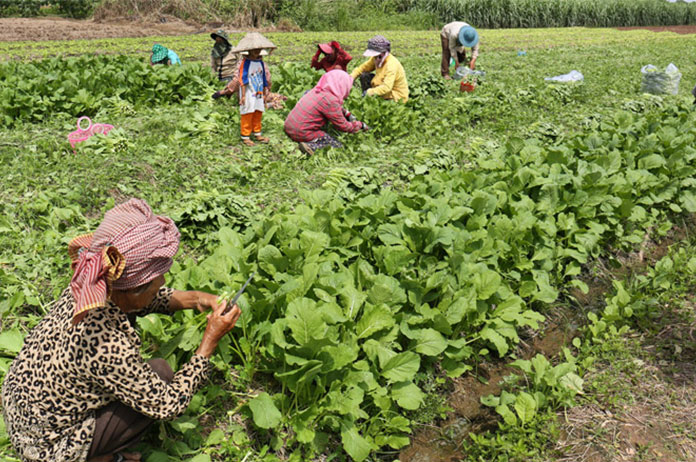Chemical Analysis Systems To Increase Food Safety

Local produce can now be checked for pesticide residue using the technique known as chromatography–mass spectrometry (LC-MS) after the Ministry of Agriculture acquired LCMS systems that can be deployed to farms around the country.
LCMS systems, which have never before been used in the Kingdom, are used to identify, characterise and quantify unknown and known compounds in a number of sectors, including biotechnology, environmental monitoring and food processing.
“The new equipment will give us information regarding the amount of pesticides in vegetables and fruits produced locally,” Hean Vanhan, Secretary of State at the Ministry of Agriculture, told Khmer Times. “Most importantly, they will help us determine whether the level of residues exceeds the limit allowed by national and international standards,” Mr Vanhan said.
The LCMS systems, which cost about $400,000 per unit, will be kept at the National Laboratory Centre in the Ministry of Agriculture. Farmers and exporters are not required to test their products using the new equipment, Mr Vanhan said, adding, however, that those who do choose to use it will receive a certificate that is well recognised internationally.
“Having products tested with the LCMS system is particularly important for exports, as many countries do require a certificate that guarantees that products meet international sanitary and phyto-sanitary standards.”
Mr Vanhan said users of the new equipment will have to pay a fee to get their products tested, but did not go into details regarding the exact price to be paid. “It will depend on where the product comes from and whether it is considered safe or not,” he said.
Dy Seveayuth, brand manager at Natural Garden – a company with four vegetable and fruit stores in Phnom Penh – said the purchase of the new equipment was great news for the sector, as it will make it easier for companies to test their products.
“It is important that we have machines that can detect pesticide residue in Cambodia. We will no longer have to go abroad to check our products,” Mr Seveayuth said.